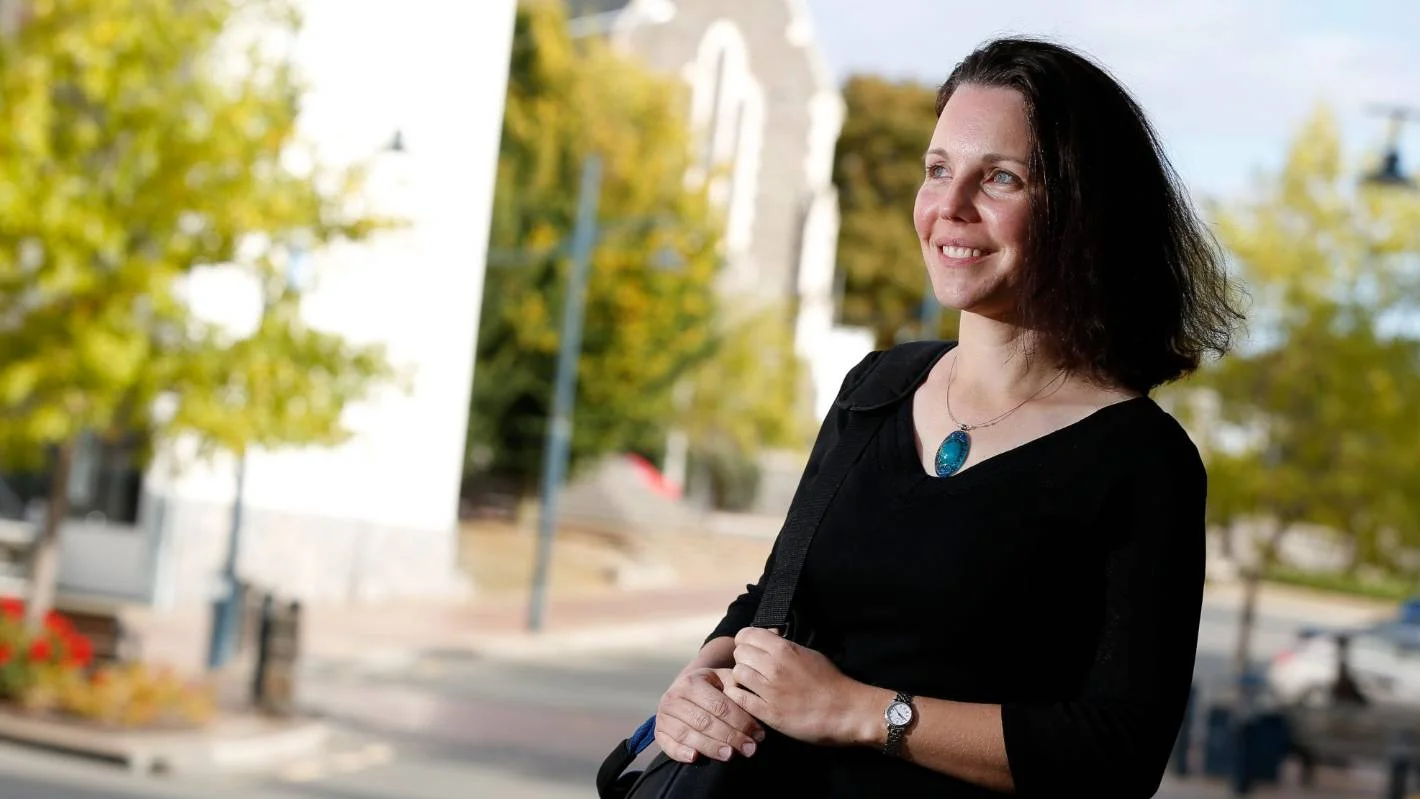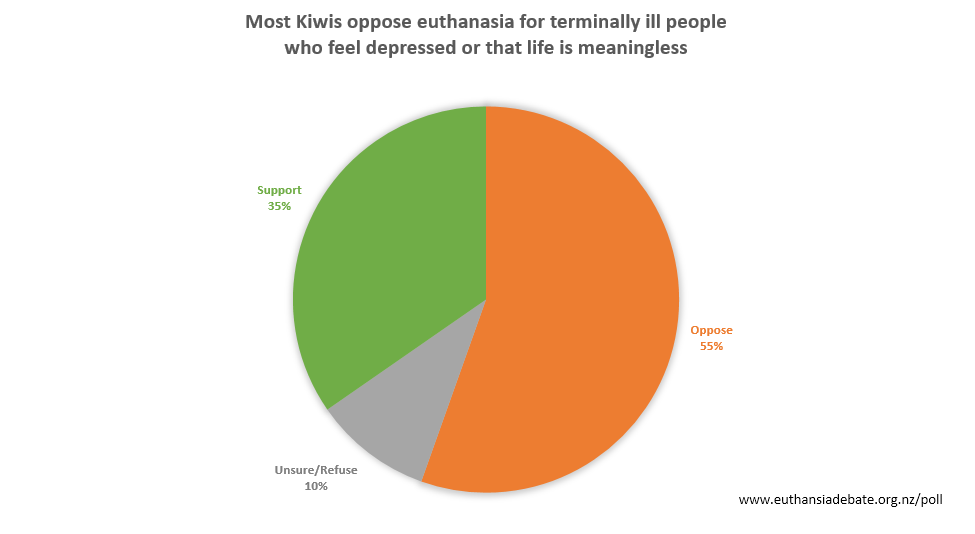A new nationwide Curia Market Research poll shows the gap between supporters and opponents of euthanasia is narrowing, and that many people withdraw their support when asked to consider some of the details involved in the End of Life Choice Bill, says Euthanasia-Free NZ executive officer Renée Joubert.
“The poll of 1,048 New Zealanders shows that public opinion on euthanasia shifts significantly depending on the level of information provided to respondents,” Ms Joubert says.
Respondents were initially advised that turning off life support and stopping medical treatment is already legal in New Zealand, but that doctors are not allowed to end the lives of their patients.
When asked whether a doctor should be allowed to give deadly drugs to deliberately kill a patient, 57% agreed while 43% either disagreed, were unsure, or refused an answer.
The same people were subsequently informed that doctors are legally allowed to give patients as much pain medication as they need to be comfortable, even if this might hasten their deaths. When then asked whether a doctor should be allowed to give deadly drugs to deliberately kill a patient, even if they are not in pain, the level of support dropped markedly to 27%.
"Simply reassuring people that providing pain relief is legal, even if it risks hastening a person’s death,” observed Ms Joubert, “causes support to halve.”
“It seems that a lot of the support for euthanasia is based on avoiding physical pain,” says Ms Joubert. “But the End of Life Choice Bill is not limited to people in pain. An eligible person may only experience emotional suffering which may even be unrelated to their medical condition.”
Only 25% of all respondents supported New Zealand having a law that would allow a terminally ill person to choose euthanasia because they feel they are a burden. “Yet concern about being a burden on family, friends and caregivers was a reason given by 63% of those who were granted an assisted suicide in Oregon last year,” Ms Joubert says.
Similarly, only 35% wants New Zealand to have a law that would allow a terminally ill person to receive euthanasia because they feel depressed or that life is meaningless.
“Clearly the New Zealand public is not supportive of euthanasia in these circumstances. However, no safeguard could prevent an otherwise eligible terminally ill person from requesting euthanasia because they feel they are a burden or that life is meaningless.”
The poll also asked about a provision in the current euthanasia Bill which would allow a person as young as 18 to request a lethal injection without having to tell their loved ones – 73% of all respondents are opposed to this provision.
“Support for making end-of-life decisions without family involvement is much lower than expected,” Ms Joubert says. “The poll result seems to imply that only 20% of New Zealanders regard euthanasia as a purely personal choice between an adult and their doctor. However, there may also be widespread concern about the 18-years age limit.”
These poll findings confirm our experience that many people who initially support euthanasia reconsider their position once they know more about current palliative care options, and once they consider some of the difficult choices lawmakers have to make about any euthanasia legislation,” Ms Joubert says. “In short, the more people know about euthanasia and this bill, the less they like it.”
Euthanasia-Free NZ therefore calls on MPs to vote against the End of Life Choice Bill at its Second Reading.
The full report is available at euthanasiadebate.org.nz/poll.





